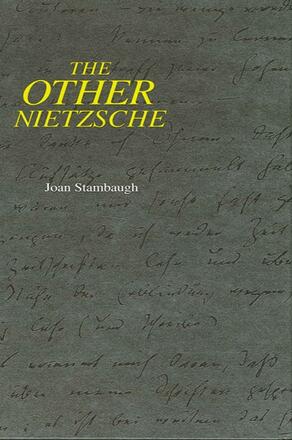
The Other Nietzsche
Alternative formats available from:
Description
This volume explores facets of Nietzsche relatively untouched by the majority of the vast literature on him. Stambaugh concentrates on his ideas on art and creativity in general, regarding these realms of human endeavor as not limited to aesthetics in the narrower sense, but as constitutive of life itself. She also explores a much neglected side of Nietzsche's thought, a dimension that is poetic and mystical. Drawing mainly from Thus Spoke Zarathustra, Nietzsche's most enigmatic and profound work, Stambaugh interprets Nietzsche's ultimate affirmation of life out of his experience of eternity.
Joan Stambaugh, Professor of Philosophy at Hunter College of City University of New York, is the author of The Finitude of Being and The Real is Not The Rational, both published by SUNY Press.
Reviews
"Nietzsche is more important today than ever. Widely read, and co-opted into almost every conceivable philosophical fad and fashion, he is urgently in need of the rescue this fine volume provides. The book is a rich feast of new insights into Nietzsche's texts, and into the philosophical questions they pose.
"Stambaugh is an internationally-recognized authority on Nietzsche. She knows the texts backwards and forwards—and is keyed in to all the distortions inherent in the 'scholarly industry' surrounding this important philosopher. In these essays—which are not merely interpretive or textual, but are themselves profound philosophical meditations by the author—one encounters the 'real' Nietzsche. " — George R. Lucas, Jr. , National Endowment for the Humanities